Brassware Products of Pakistan
Brassware Products of Pakistan:
A Glimpse of Timeless Elegance
Brassware Products of Pakistan's craftsmanship is a rich legacy that has flourished for centuries, blending artistry with practicality. Known for its intricate embossing, etching, and carvings, Pakistan's brassware exemplifies the exquisite elegance of Islamic artwork. These time-honored techniques turn everyday brass items into stunning works of art cherished both locally and internationally.
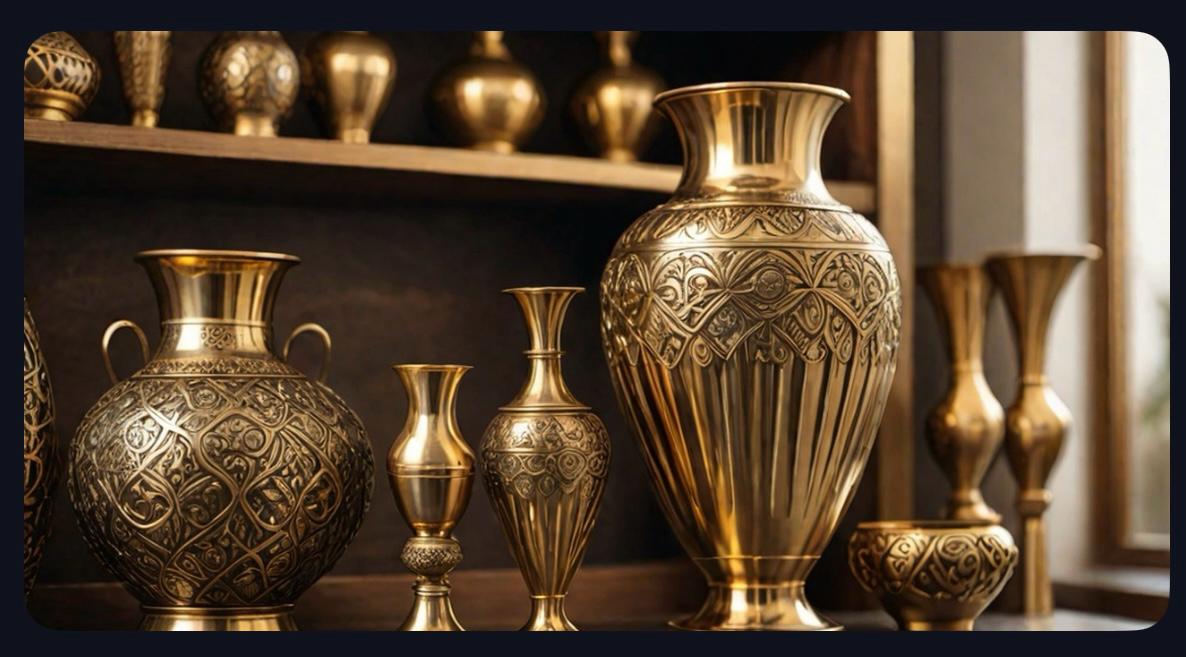 Brassware Products
Brassware ProductsBrassware Products of Pakistan- Exquisite Craftsmanship
Pakistan has the honour of mastering the art of creating brassware products through the artisans that have been taught the art by the previous generations. They are taught age-old techniques by their elders that enables them to transform the metal into beautiful pieces of items suitable for décor and also for general tableware use.
1.
Embossing
Embossing deals with creating raised designs giving
the brassware a three-dimensional look that adds to the luxurious feel of the
product. As most of the patterns used for the creation of hand-made products in
Pakistan are inspired with Islamic artwork, Persian and Arabic motifs that are
mostly floral or geometric.
2.
Etching
In order to create engravings the artisans use
hand-etching with simple tools in a precise manner with their experience and
practice. These intricate designs t reveal the cultural and
spiritual essence of Islamic art. The delicate engravings etched by hand are exceptional in their fine detail and timeless beauty.
3.
Carvings
To further enhance the artistic appeal, artisans apply
traditional techniques and tools to make deep carvings on the brassware
products. This gives the feel of a unique masterpiece with elegant designs on
these products.
Brassware Products of Pakistan: Regions Known for Brass Craftsmanship
Pakistan’s brass industry thrives in several regions across Pakistan, each is known for its distinctive style and techniques:
- Multan: Famous for its intricate patterns and antique finishes.
- Lahore: Renowned for blending traditional and contemporary designs.
- Peshawar: Known for bold, rustic carvings and decorative motifs.
The products prepared with brass have a large diversity in the types of products made by each region. These include intricate filigree work from Peshawar to the colourful enamelwork done in Karachi aeach piece shows the country’s rich cultural heritage. In every region there are products i.e. beautifully crafted vases, ornate lanterns, decorative plates, and many more.
The most amazing aspect of Pakistan’s brassware products is the level of craftsmanship that goes into the hand-made production of each piece. This starts from the initial preparing of design and then meticulous preparing of the metal, selecting the right quality, etching the design on the product and then applying the right finish and polishing.
To view the diversity of products, the lanterns, hanging lamps and the candle holders from regions including Multan, there is a variety of products that are hand-made with the age-old techniques handed taught from generation to generation. These techniques include hammering, etching and carving. Artisans use small hammers to shape the brass into delicate patterns. The level of precision and control required to create such intricate designs is remarkable, and the end result testifies the artisans' skill.
Brassware Products of Pakistan- Variety of Brass Products
Pakistani brassware caters to diverse tastes and needs, ranging from decorative to functional items. Popular products include:
- Home Décor: Vases, candle stands, wall hangings, and decorative plates.
- Kitchenware: Teapots, trays, and utensils with detailed designs.
- Furniture Accents: Brass inlays for tables, cabinets, and mirrors.
Each product embodies the heritage and sophistication of Islamic and South Asian culture.
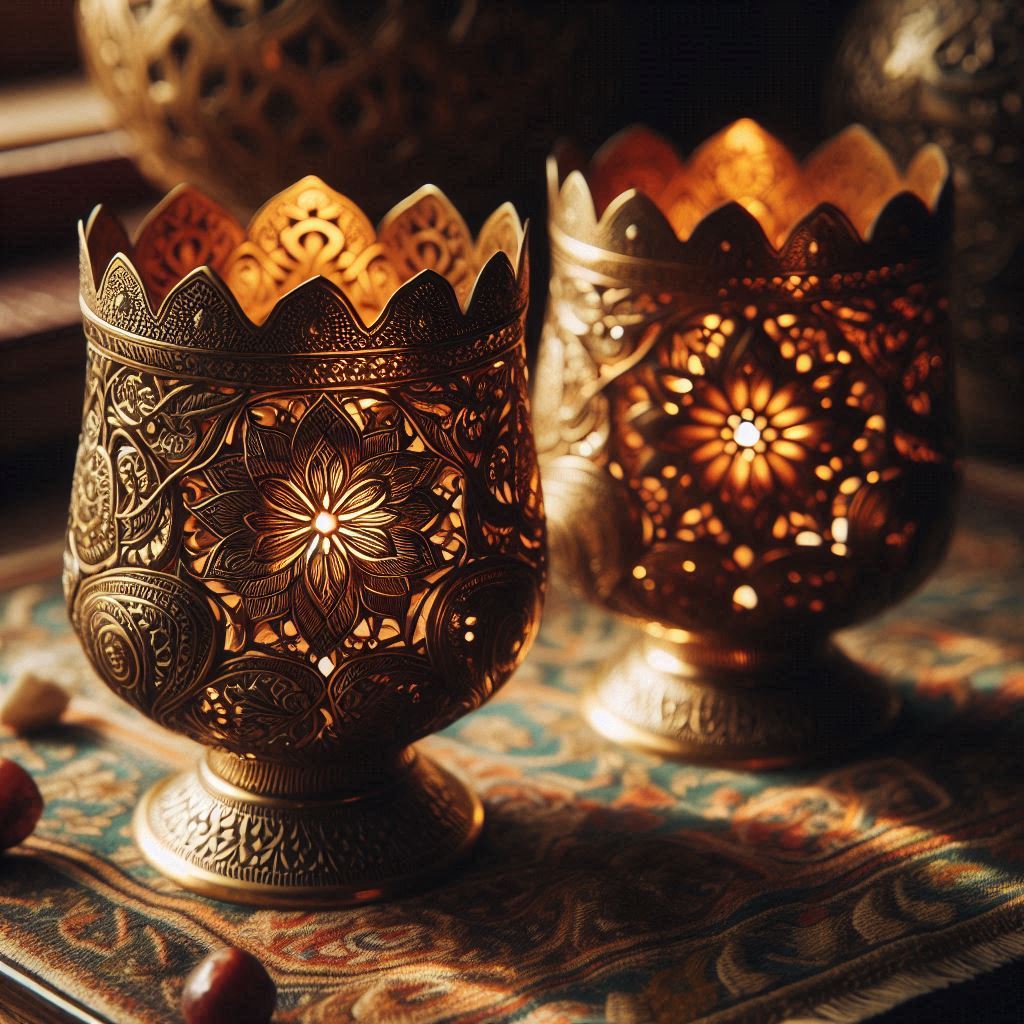 Brassware Candle Holder
Brassware Candle Holder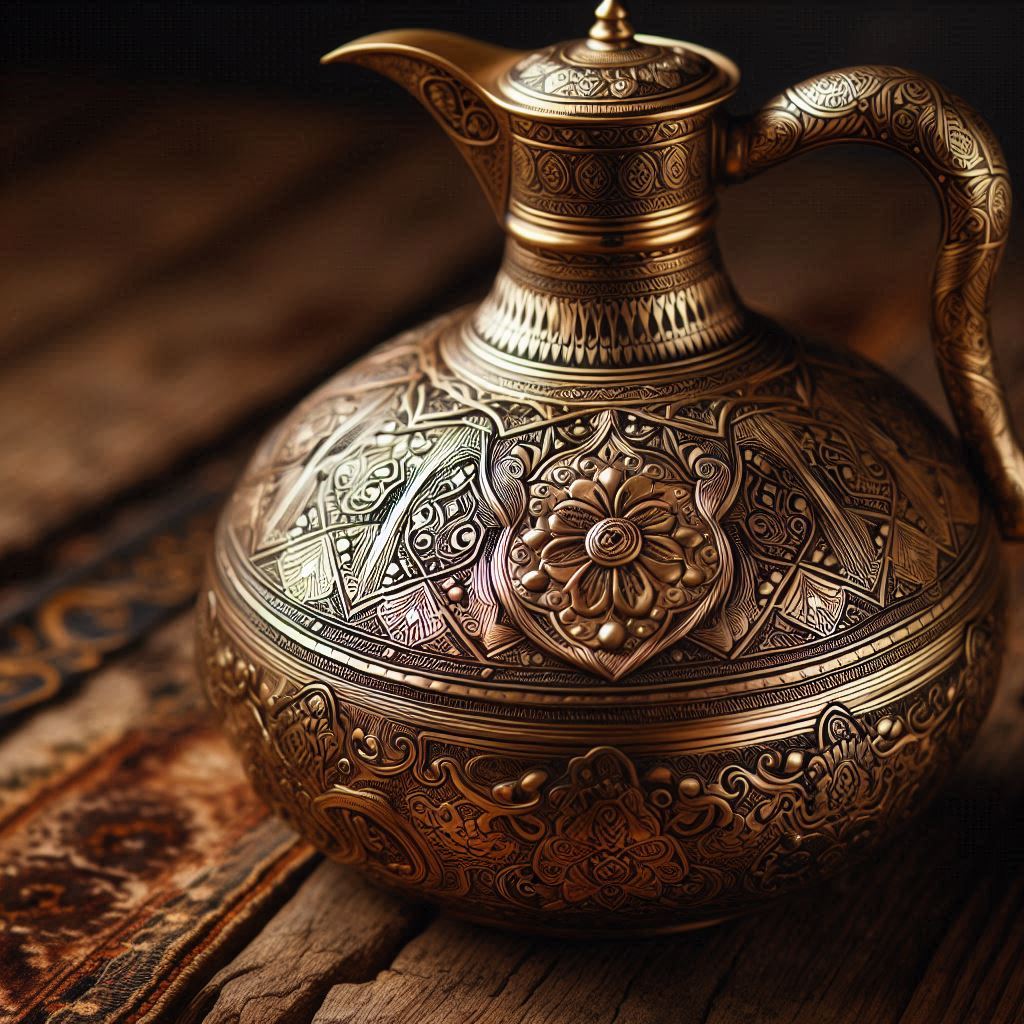 Brassware Decanter
Brassware Decanter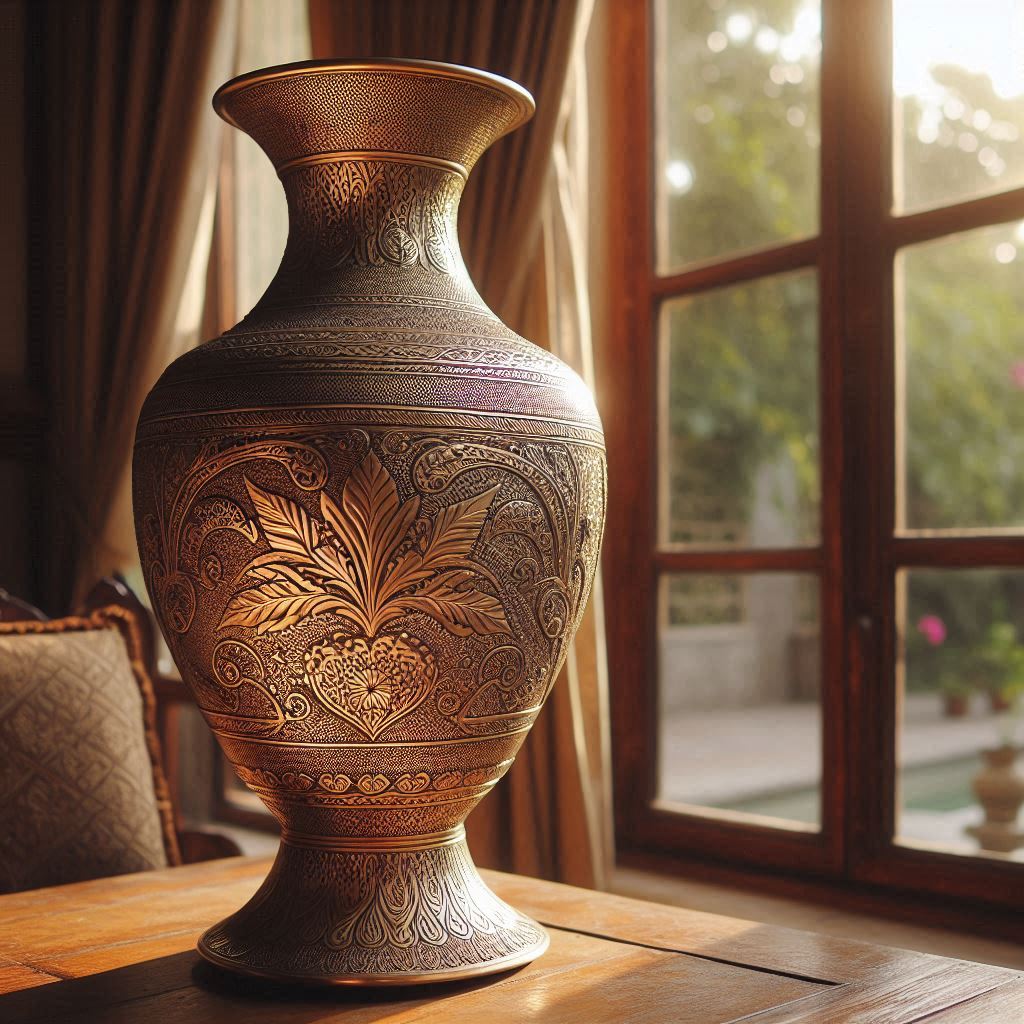 Brassware Vase
Brassware VaseBrassware Products of Pakistan - The Cultural Significance of Brassware
- Traditional Craftsmanship: The craftsmanship reflects artistic pride in the heritage and culture depicting the ornate styles of the background.
- Exclusive Designs: No two items are alike, as each is handcrafted with care
- Versatility: These products are perfect as a gift, for home decor and for day-to-day functional use.
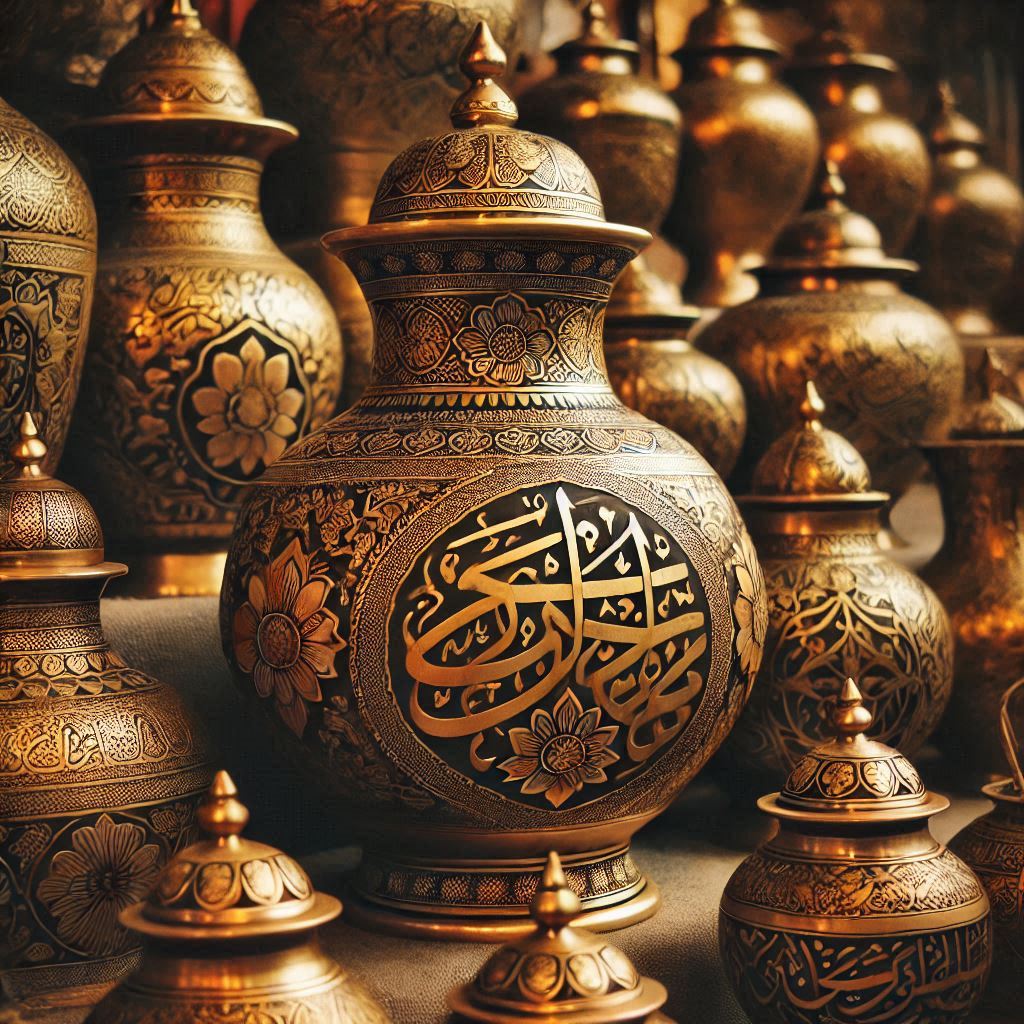 Brassware Calligraphic Vases
Brassware Calligraphic Vases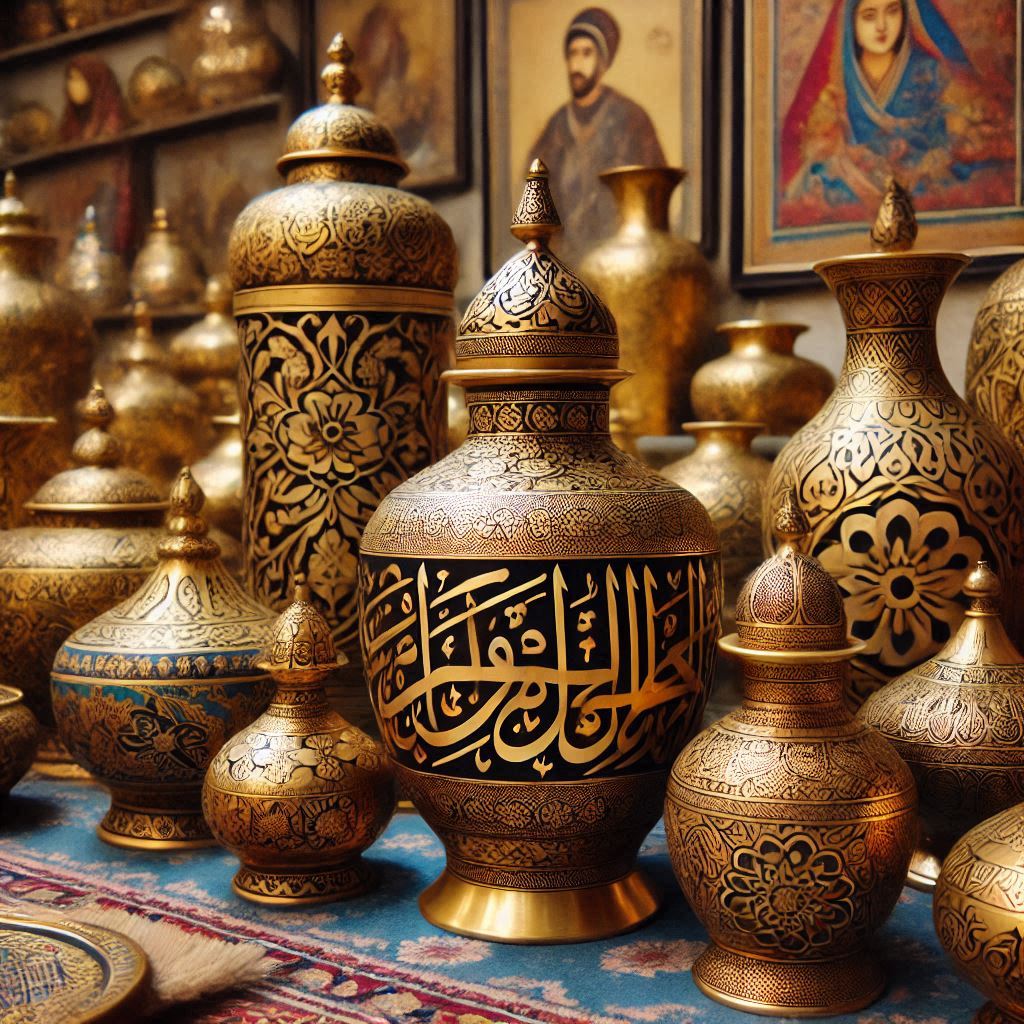 Brassware Calligraphic Vases
Brassware Calligraphic Vases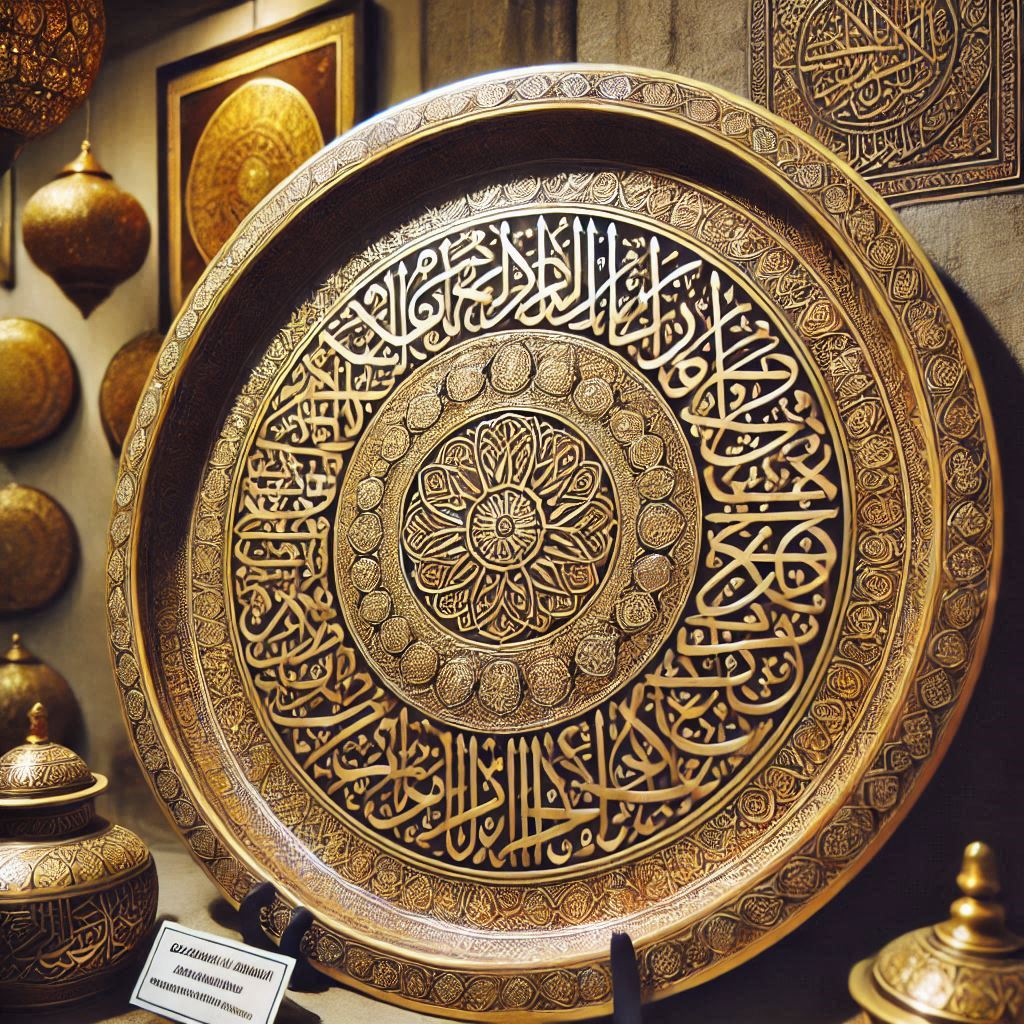 Brassware Calligraphic Plate
Brassware Calligraphic PlateBrassware Products of Pakistan- Sustainability and Timeless
Appeal
Brass products don't only offer enduring beauty but are also eco-friendly. The metal is highly durable and recyclable, while retaining its lustre with minimal maintenance, making it a sustainable choice for modern homes.
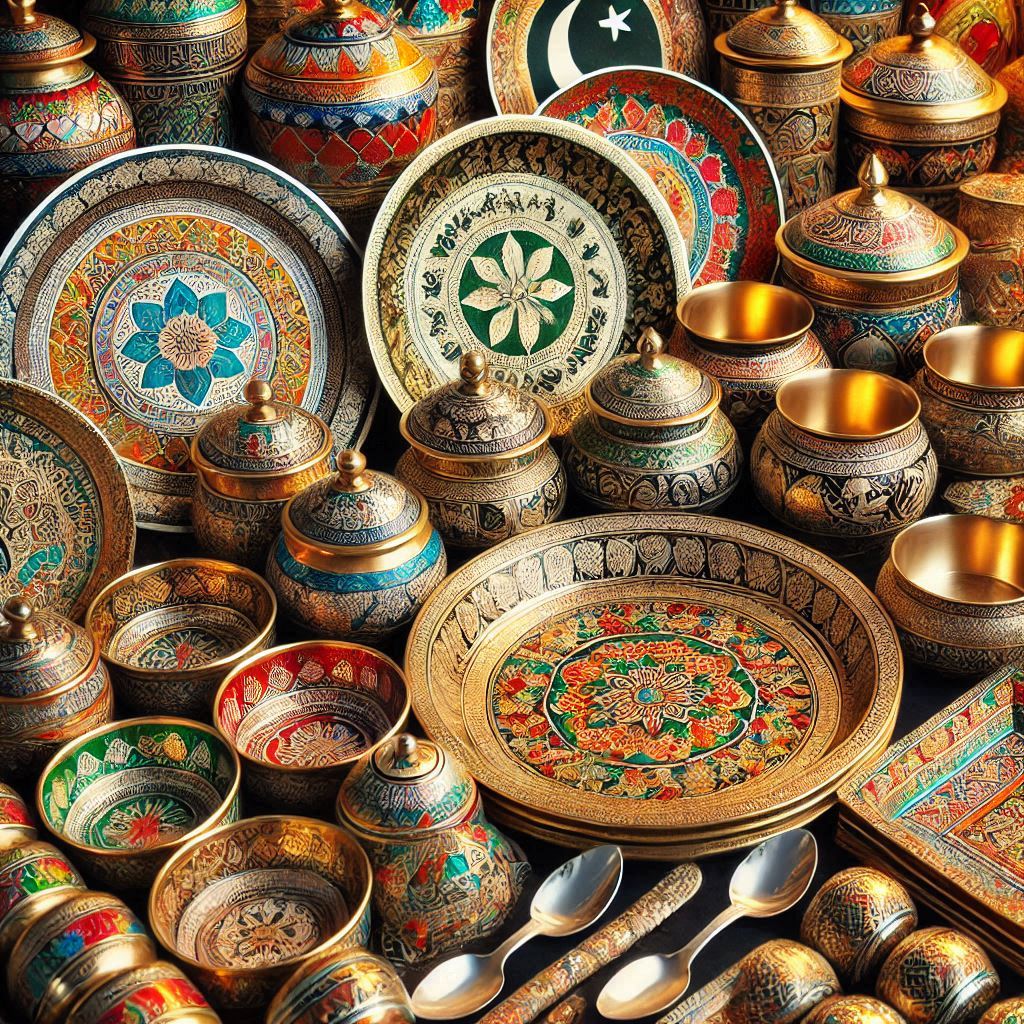 Brassware Utensils
Brassware Utensils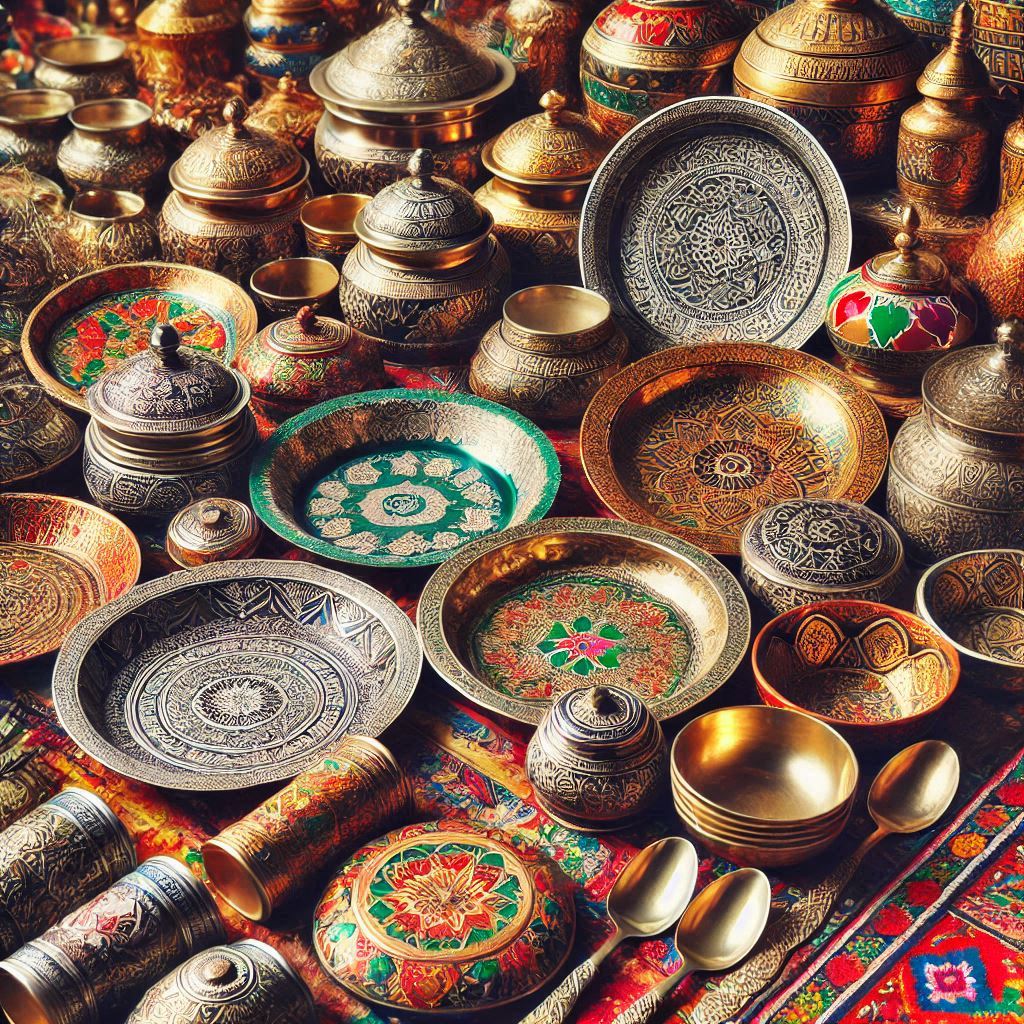 Brassware Utensils
Brassware Utensils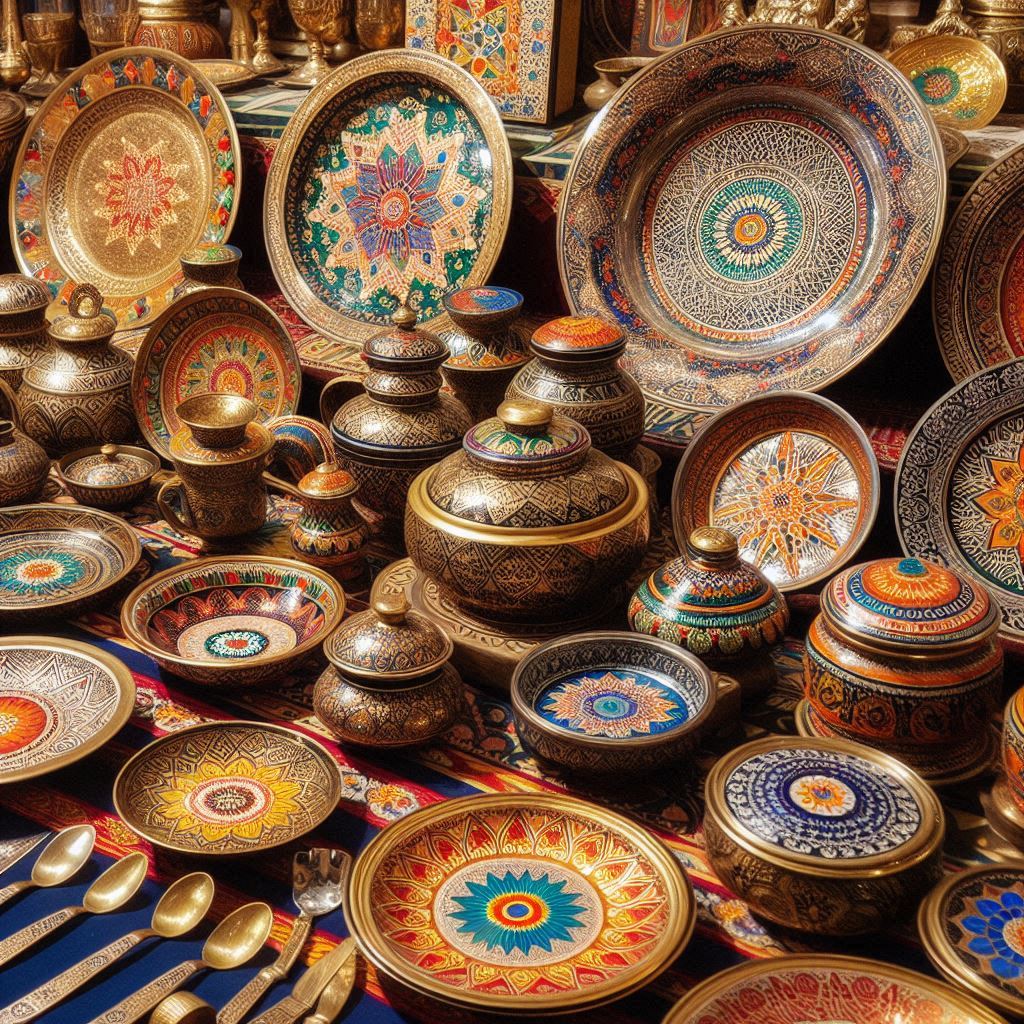 Brassware Utensils
Brassware UtensilsBrassware Products of Pakistan - What is the Raw Material for Brass
The raw material for brassware is brass, which is an alloy made primarily of two metals: copper and zinc. The specific properties and appearance of brass can vary depending on the proportion of these components:
Copper: Typically forms 60–70% of brass. It gives it malleability, ductility, and a rich golden color.
Zinc: Makes up the remaining percentage. Zinc adds strength and hardness to the alloy while providing tonal variations (i.e. higher zinc content gives a lighter tone).
Other Elements (Optional Additives) :
In some cases, small amounts of other elements may be added to enhance specific qualities:
Lead: Adds hardness to the alloy that improves machinability, often found in decorative or precision brass products.
Tin: To reduce corrosion, tin is added as a resistant, especially for items exposed to moisture.
Aluminum: This also adds strength and provides resistance to tarnishing.
Nickel: This gives a silver-like appearance to the alloy, sometimes used in high-quality brass.
The brass used for crafting traditional brassware in Pakistan is typically chosen for its ease of working and its aesthetic appeal, that makes it ideal for embossing, etching, and carving.
Brassware Products of Pakistan - Sources of Raw Material for Brass
The raw material for brassware, primarily brass alloy, is sourced from various local and international suppliers, depending on availability and regional production capabilities. In Pakistan, the sourcing of raw materials for brass crafting involves both domestic recycling and imported metals:
1. Local Sources:
- Recycled Metals:
Brass is often recycled from old utensils, machinery parts, and industrial scrap. Recycling is a cost-effective and sustainable way to source raw materials for traditional artisans.
- Copper Mines and Scrap:
Pakistan has copper mining operations in areas like Saindak (Balochistan), which may contribute to the supply of raw materials for brass production.
2. Imported Materials:
When domestic sources are insufficient, brass or its components (copper and zinc) are imported from countries with large-scale production of these metals, such as:
- China
- India
- United Arab Emirates (UAE)
- European Countries (for high-quality raw brass sheets and rods)
3. Custom Alloying:
In some cases, artisans or manufacturers source copper and zinc separately and mix them in specific ratios to create brass locally. This allows them to tailor the alloy’s properties (color, strength, malleability) to their needs.
Brassware Products of Pakistan - Preserving Tradition in a Modern World
Pakistani brass products signify the nation’s rich traditional artistic legacy and the timeless appeal of Islamic craftsmanship. Whether seeking a decorative work of art or a functional utensil, these items add timeless beauty to any space. Explore the world of Pakistani brass and bring a piece of history into your home today.
- Home
- Products and Trades
- Brassware Products


